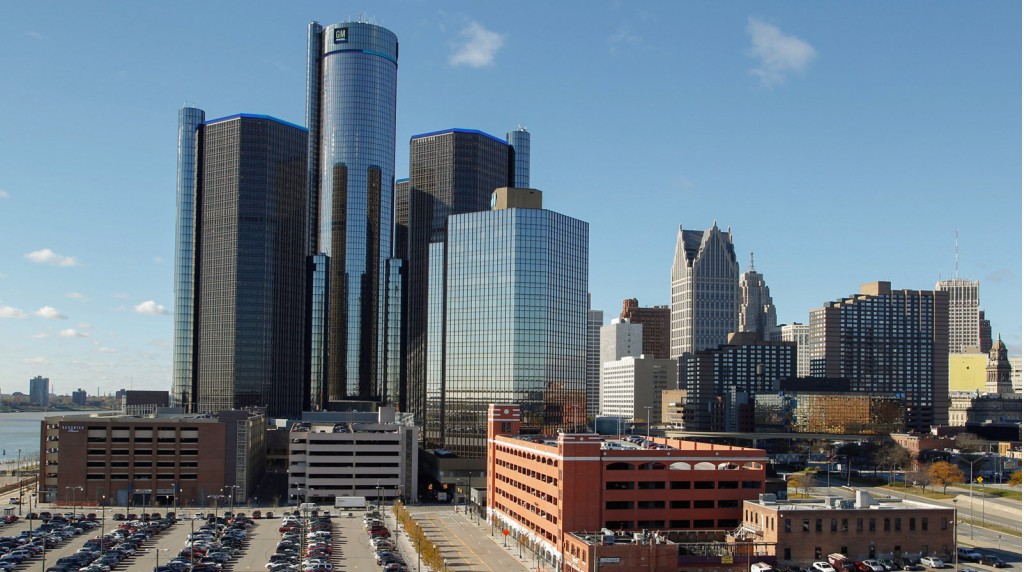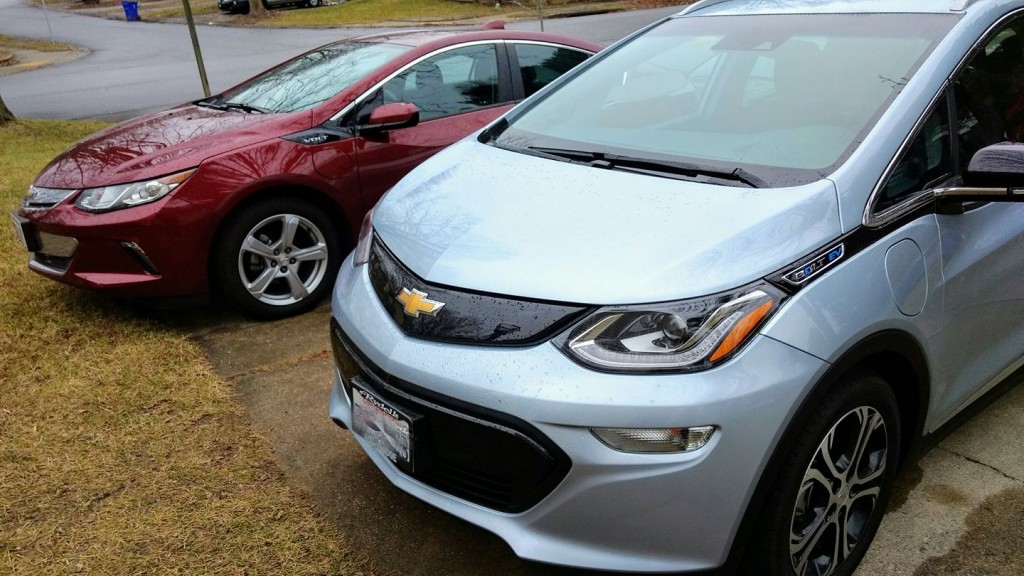It remains unclear whether Tesla will survive as an independent company, given that it's had exactly two profitable quarters in its 12-plus years of existence.
And yet, last week, Tesla briefly passed General Motors to become the most valuable U.S. automaker by market capitalization.
It had passed Ford last week, and long ago surpassed the value of troubled Fiat Chrysler.
DON'T MISS: Why Tesla's Elon Musk Must Sell 6 Million Electric Cars To Make History
This fact has been endlessly perplexing both to some types of investors and to the Detroit-based auto companies and much of the media that cover them.
GM and Ford are now both in relatively good shape, consistently profitable, paring operations that don't make sufficient money, and in the case of GM, strong in the world's largest car market, China.
They support their existing operations and invest in future products and R&D with capital generated from their ongoing operations.

General Motors Renaissance Center in Detroit, Michigan
In other words, they're doing what companies are supposed to do: make money, mind their operations, and pay dividends.
And yet, the combined judgment of the financial markets values those profitable companies less than a single Silicon Valley startup company.
How can this be?
READ THIS: A Polite Note About Tesla To Media Colleagues (Especially In Detroit)
The answer, as suggested by Detroit News columnist Daniel Howes, is that investors see in Tesla a company firmly focused on the future of autonomous and electric cars and renewable energy.
They appear to view the two largest Detroit makers, on the other hand, with deep suspicion.
The fear is that they will repeat the sins of their recent past, the same sins that required the U.S. government to finance restructuring of GM and Chrysler following bankruptcy—and to award Ford $5.9 billion in low-interest loans to fund development of more energy-efficient powertrains.

Solar canopy at Ford World Headquarters in Dearborn, Michigan
Howes notes that the Detroit makers long tolerated shoddy quality and sold cars that clearly couldn't compete with those offered by Japanese and later Korean brands.
Instead, they leaned increasingly on highly profitable pickup trucks and expanding lineups of sport-utility vehicles derived from them to pay the bills and derided advanced technologies like electric cars as impractical, effete, and unprofitable.
Even the profitable trucks couldn't save them in the great recession of 2008, which Toyota and other global makers weathered with greater ease.
CHECK OUT: Former GM Product Czar Bob Lutz Asks: Is Tesla Doomed?
Howes suggests that today's investors simply don't trust that GM and Ford won't repeat that pattern.
Indeed, both companies are drastically cutting back on passenger cars and redirecting funds to crossover utilities, because that's what the market is demanding—not only in North America but globally.
Those vehicles are far more fuel-efficient today than they were 15 years ago, granted, and even buyers in developing markets like India and China are snapping up small crossovers.

2017 Chevrolet Bolt EV electric car, owned by Brian Ro, Columbia, Maryland
GM ranks with the Renault-Nissan alliance and Tesla in its plug-in car efforts, selling both the Chevrolet Volt plug-in hybrid and now the Chevy Bolt EV electric car, with its groundbreaking 238-mile range.
Ford, on the other hand, is a distant second to Toyota in hybrid technology and has produced only a minimal number of battery-electric vehicles.
(Fiat Chrysler continues to have far deeper problems than a lack of plug-in electric vehicles in its lineup.)
So when reporters and analysts question the market's wisdom in valuing Tesla over a Ford or a GM, Howes suggests, the reason is simple.
The market simply doesn't believe that the Detroit makers are focusing sufficiently on the future—or that they won't repeat the sins of the past that drove them into bankruptcy.

Fiat Chrysler Automobiles Detroit CNG fueling station
Proving that belief wrong, he concludes, will take continued hard effort on the parts of GM and Ford. And it may take years to come.
Deeply frustrating to Detroit, no doubt. But ... what was that saying about the sins of the fathers?
_______________________________________













